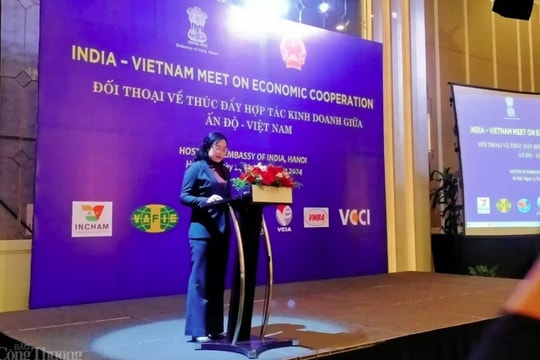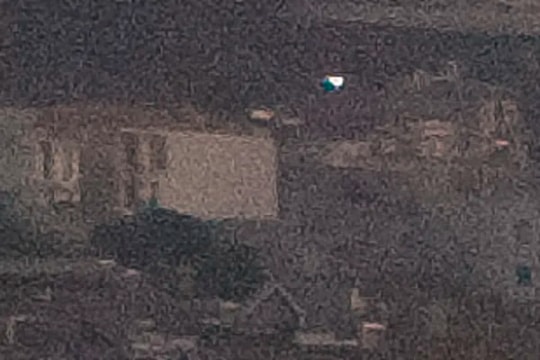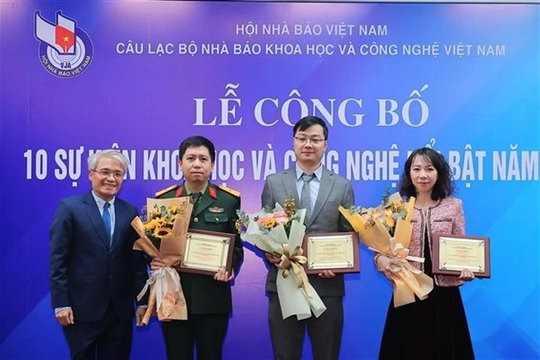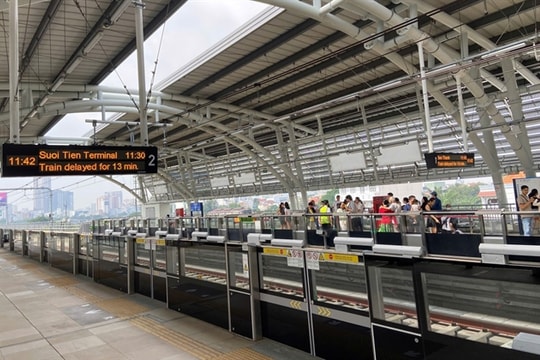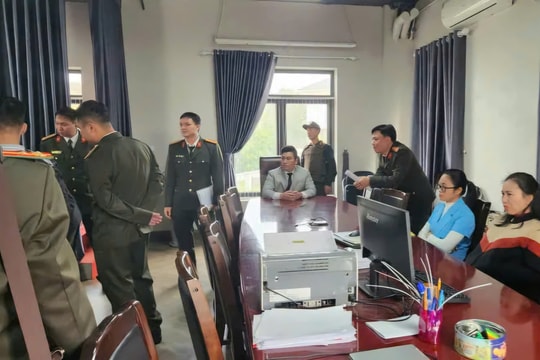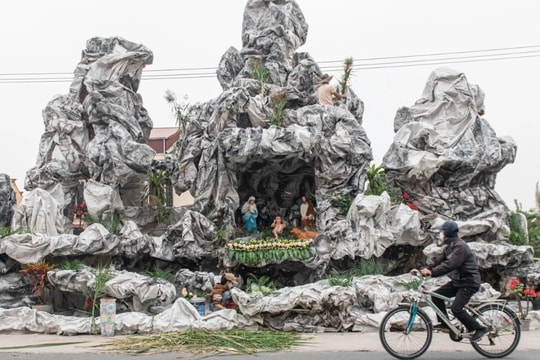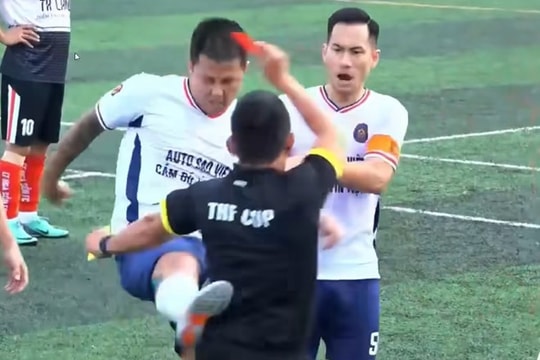Former Lào Cai officials on trial for money laundering
Nguyễn Văn Vịnh, former Lào Cai Provincial Party Secretary and Doãn Văn Hưởng, former Lào Cai’s People’s Committee Chairman, were indicted along with 15 other defendants for money laundering; violation of research, probing and exploitation of resources; and abuse of power or position to influence others for personal gain.
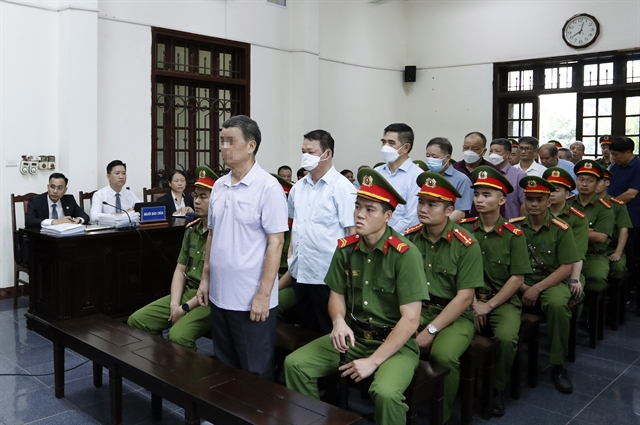 |
| Defendants at the trial on Monday at Lào Cai People's Court. — VNA/VNS Photo |
LÀO CAI — The trial of former Lào Cai officials Nguyễn Văn Vịnh and Doãn Văn Hưởng started Monday morning at the Lào Cai People's Court.
Vịnh, former Lào Cai Provincial Party Secretary and Hưởng, former Chairman of Lào Cai People’s Committee, were indicted along with 15 other defendants for money laundering; violation of research, probing and exploitation of resources; and abuse of power or position to influence others for personal gain. These charges are related to the case of illegal exploitation of 1.5 million tonnes of apatite ore in Lào Cai in 2009.
According to the indictment, in 2009, the State-owned Lilama Construction and Trading Co., Ltd. (Lilama) received a certificate from the People's Committee of Lào Cai Province to build a hotel and restaurant in Village 2, Đồng Tuyển Commune, Lào Cai City, on a 3.77ha plot.
During land leveling, apatite ore was discovered, prompting a field survey by various Lào Cai departments. It was determined that part of the project area overlapped with 22,000sq.m of Mining Area No. 18, within the apatite ore planning zone approved by the Ministry of Industry and Trade.
Per regulations, a mining licence is needed to extract apatite ore in this area, which can only be granted by the government.
As a result, the People's Committee of Lào Cai Province revoked Lilama's investment certificate and transferred the 3.77-hectare land to Apatit Vietnam Co., Ltd. (Apatit Company) for management and use.
On March 26, 2012, Apatit Company sent a document to the People's Committee of Lào Cai Province requesting permission to mine apatite ore in this area. The reason given was that during the land levelling process, the apatite ore body had been exposed, and there were signs of illegal mining; the ore was precariously situated and vulnerable to landslides and erosion during the rainy season, which could lead to losses.
Apatit Company requested that the local authorities allow them to recover this at-risk apatite ore.
Subsequently, the People's Committee of Lào Cai Province issued Document No. 839, agreeing to assign Apatit Company to protect the apatite ore within the 3.77-ha area. The company was tasked with levelling the mine area to address the risk of landslides and to bring the mine to a safe state within two months.
In case minerals were discovered during the levelling, Lào Cai People's Committee also allowed Apatit Company to recover, transport, manage, and use them in accordance with regulations.
Following the decision by Lào Cai Province, Director of Lilama Nguyễn Mạnh Thừa sent a document to Apatit Company requesting to participate in stabilising areas prone to landslides affecting local households during the rainy season. Nguyễn Quang Huy, Director of Apatit Company agreed to Lilama's request.
Subsequently, Thừa issued Plan No.13 to level the 3.77ha area, with the aim of thoroughly recovering apatite ore if discovered during the levelling process.
During the joint recovery of ore with Apatit Company, on May 30, 2012, Thừa sent a document requesting the People's Committee of Lào Cai Province to return the 3.77-ha area and reissue the investment certificate for the hotel and restaurant project in Thôn 2, Đồng Tuyển Commune.
More than two months after receiving the request from Lilama, the People's Committee of Lào Cai Province issued Document No. 2160, agreeing in principle to the hotel and restaurant project and instructing Apatit Company to hand over the 3.77-hectare area in Khai Trường 18 to Lilama.
After bringing in machinery to level the ground, Lilama continued to discover signs of minerals and requested that the People's Committee of Lào Cai Province direct the relevant provincial departments to take samples for analysis. If confirmed as minerals, Lilama sought permission to collect, transport, and hand them over to Apatit Company for management and use to avoid wasting resources.
On May 20, 2013, the People's Committee of Lào Cai Province, then led by Hưởng, issued Document No. 1717, requiring Lilama to regularly report and take samples for testing. If the analysis confirmed the presence of ore, including low-grade ore, Lilama was to collect it and reach an agreement with Apatit Company on its collection, management, and use according to regulations.
The indictment by the Lào Cai Province People's Procuracy determined that the long-term violations by Lilama and Apatit Company were facilitated by numerous documents issued by the People's Committee of Lào Cai Province.
These documents enabled Lilama's illegal extraction of over 1.5 million tonnes of various types of apatite ore, valued at over VNĐ610 billion (US$23.9 million).
The trial is scheduled to last nine days. — VNS




